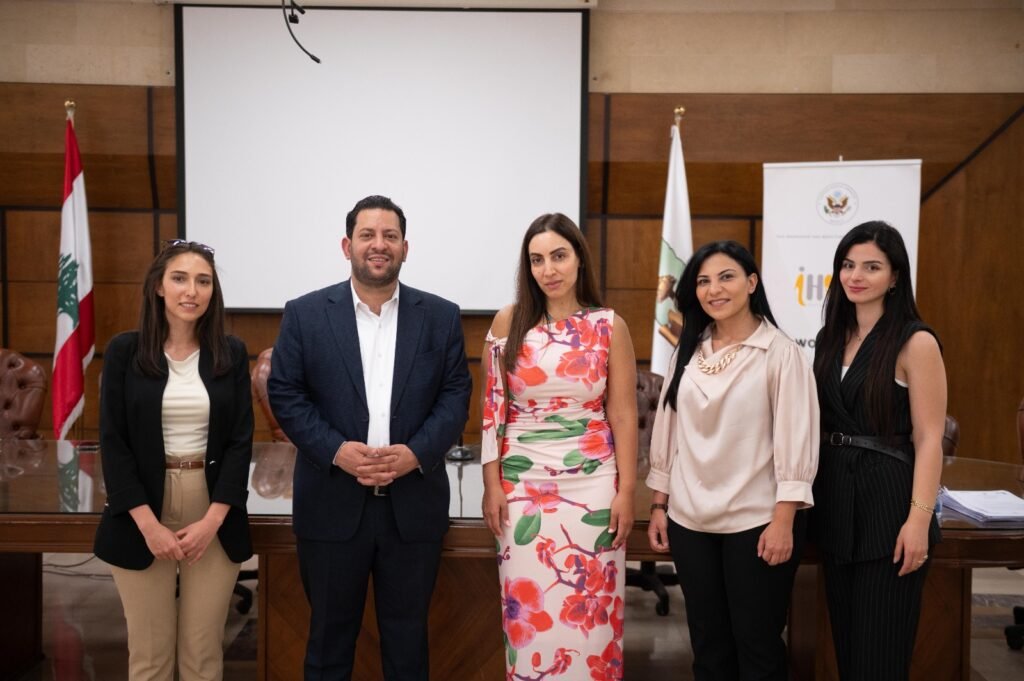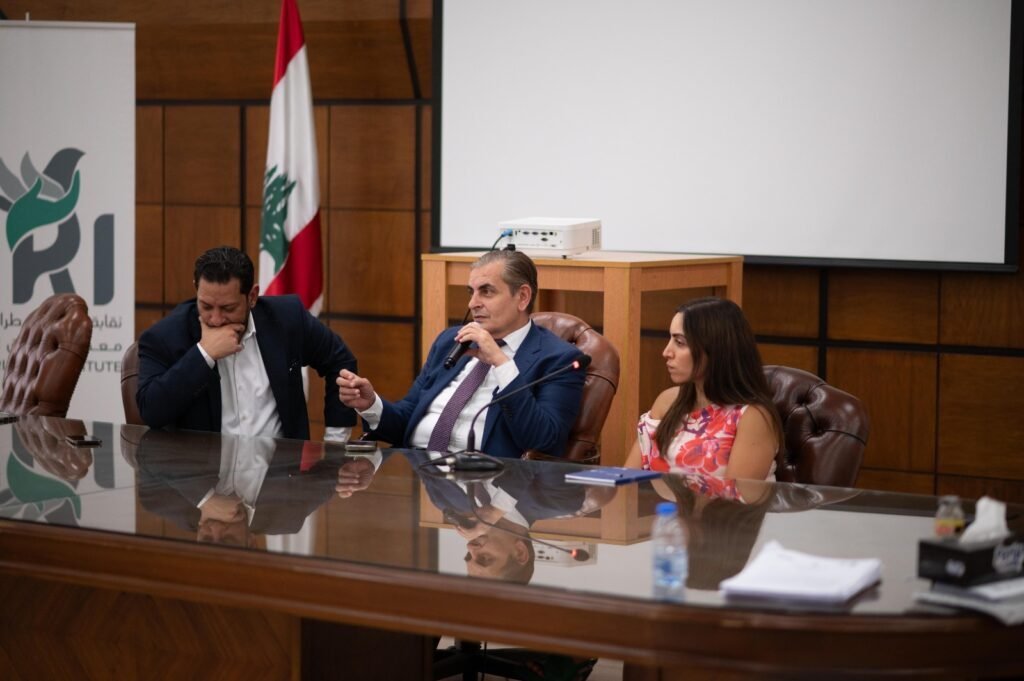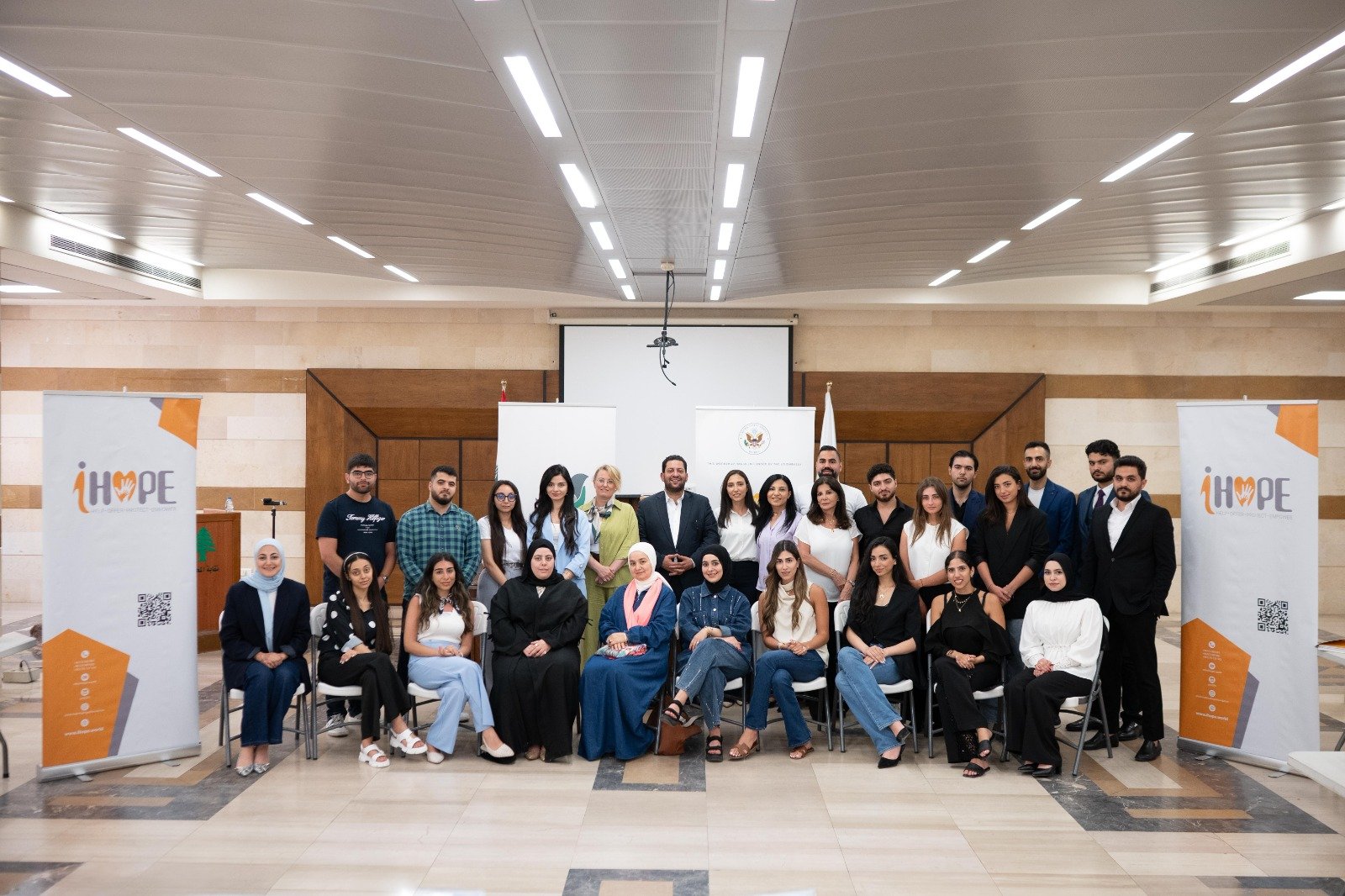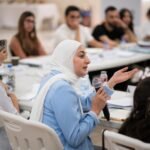- info@ihope.world
- Mon - Sat: 09.00 am - 05:00 pm
A Stand Against IPCA: iHOPE's Participation in the 8th Annual iSTAND Conference
iHOPE, in collaboration with the Tripoli Bar Association and Human Rights Institute, and with the generous support of the US Embassy in Beirut, recently launched the The National Advocacy Campaign on International Parental Child Abduction (IPCA). This vital initiative combines an ongoing advocacy campaign in Lebanon to spread awareness and establish a platform to connect left-behind parents with experienced attorneys, alongside a comprehensive four-day workshop, to equip future attorneys and legal advocates with the skills and resources necessary to preserve the rights of abducted children and left-behind parents.


A Deep Dive into IPCA: The Four-Day Workshop Unpacked
The meticulously designed workshop provided participants with a foundational understanding of IPCA, focusing on its legal, practical, and psychological dimensions.
Day 1: Laying the Legal Groundwork
The workshop kicked off with an in-depth exploration of international laws governing IPCA. Attorney Mohamad Al Ayouby provided a thorough examination of the Hague Convention of 1980, a critical international treaty aimed at returning abducted children. Following this, Juvenile Court Judge Zaynab Rabab offered an insightful discussion on the intricate relationship between Lebanese Child Protection Laws and the Hague Convention, highlighting the unique challenges faced in non-Hague countries like Lebanon, which also lack a unified Personal Status Law.
Day 2: Practical Strategies for Litigation and Mediation
The second day transitioned into the practical application of legal strategies. Attorney Jihane Mansour presented on effective Litigation Strategies under Lebanese Laws, providing participants with the knowledge to navigate the local legal landscape. Subsequently, Attorney Nermine Al Ahmad introduced participants to the first Alternative Dispute Resolution (ADR) method: Mediation. She elaborated on the unique iHOPE Mediation method, a trilingual approach specifically designed to resolve IPCA cases across the Middle East.
Day 3: Advocacy and the Psychological Impact of Abduction
Day three delved into the critical aspects of advocacy and the profound psychological impacts of IPCA. Attorney Rasha Kayal delivered a detailed explanation on “The Whats, Whys & Hows of Advocacy,” guiding participants on how to construct robust advocacy strategies in IPCA cases. The day concluded with an essential session on the Psychological reasons and impacts of abduction on both parents and children, presented by expert Clinical Psychologists Mr. George Al Najjar and Mr. Tony Abou Zaydan, offering a crucial human perspective on this complex issue.
Day 4: Honing Skills Through Mock Trials and Debates
The concluding day emphasized the nuances of communication and practical skills application. Dr. Hoda Helou highlighted the crucial importance of Terminology in Advocacy and Mediation within IPCA cases. The workshop culminated with engaging and competitive activities, including a spirited Advocacy Debate on whether Lebanon should sign the Hague Convention on the Civil Aspects of International Child Abduction 1980. This was followed by an immersive Abduction Mock Trial, providing participants with a unique opportunity to apply their newly acquired litigation, mediation, and advocacy skills in a realistic, simulated environment.
The Ongoing Advocacy Campaign: A Call to Action
The IPCA Project isn’t just a workshop; it’s an ongoing Advocacy Campaign dedicated to raising awareness about the devastating issue of parental abduction to and from Lebanon. By equipping future attorneys and legal advocates with specialized skills and resources, iHOPE aims to empower them to effectively preserve the rights of abducted children and their left-behind parents. This initiative represents iHOPE’s commitment to its civic duty, working towards a future where more children are protected from the trauma of abduction.

| M | T | W | T | F | S | S |
|---|---|---|---|---|---|---|
| 1 | ||||||
| 2 | 3 | 4 | 5 | 6 | 7 | 8 |
| 9 | 10 | 11 | 12 | 13 | 14 | 15 |
| 16 | 17 | 18 | 19 | 20 | 21 | 22 |
| 23 | 24 | 25 | 26 | 27 | 28 | |
Search
Causes


SUBSCRIBE
Instagram Feed
- Made by iHOPE - Copyright 2025
- Info@ihope.world












Leave a Reply